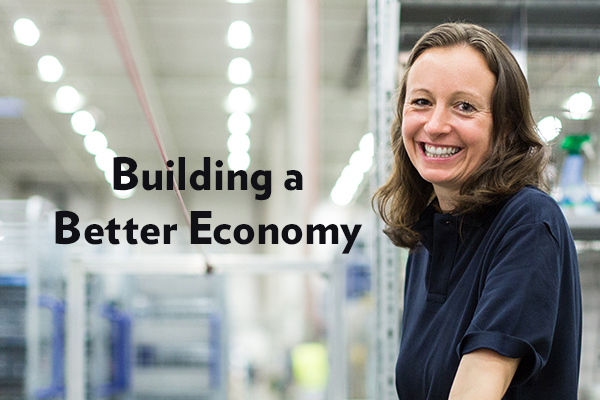Media

Economic Growth or Education OpportunityWhy not Both
In a recent Philadelphia Inquirer op-ed, Mark Gleason explains that growing the economy and expanding educational opportunity are complementary, not competing goals:
When it comes to preparing our children to become productive citizens in a world-class city, we cannot afford to pit these issues against one another in a zero-sum game where supporting growth is seen as being against public schools.
Mark is the executive director of the Philadelphia School Partnership, a nonprofit whose mission is to “improve outcomes for low-income students and respond to the demand of families by expanding access to great schools.” He knows a thing or two about improving schools and how that can impact a child’s future. And like all great education reformers, Mark believes kids deserve access to “all kinds of great schools, regardless of their ideology, platform or political alliances.”
Mark’s not alone in his assessment that we can simultaneously achieve multiple policy goals. As another great education reformer, Howard Fuller, once stated, “We can walk and chew gum at the same time.” Indeed, school choice research conducted in 2018 concluded that expanded educational opportunity in Mississippi and elsewhere would lead to economic benefits exceeding $1 billion.
As Mark rightly points out, lower tax rates and less burdensome regulations would lead to an expanded, more skilled workforce, which would expand the tax base and school revenue structure.
A pro-growth agenda need not come at the expense of public education.
Mark Gleason
“A pro-growth agenda need not come at the expense of public education,” he writes.
The recipes for a healthy economy and a healthy school system are much the same. Lower taxes. Eased regulations. More quality options. Opportunity breeds prosperity. Let’s incentivize business owners, workers, and their families to move to and stay in Pennsylvania and its great cities like Philadelphia.
Read Mark’s piece in full here.